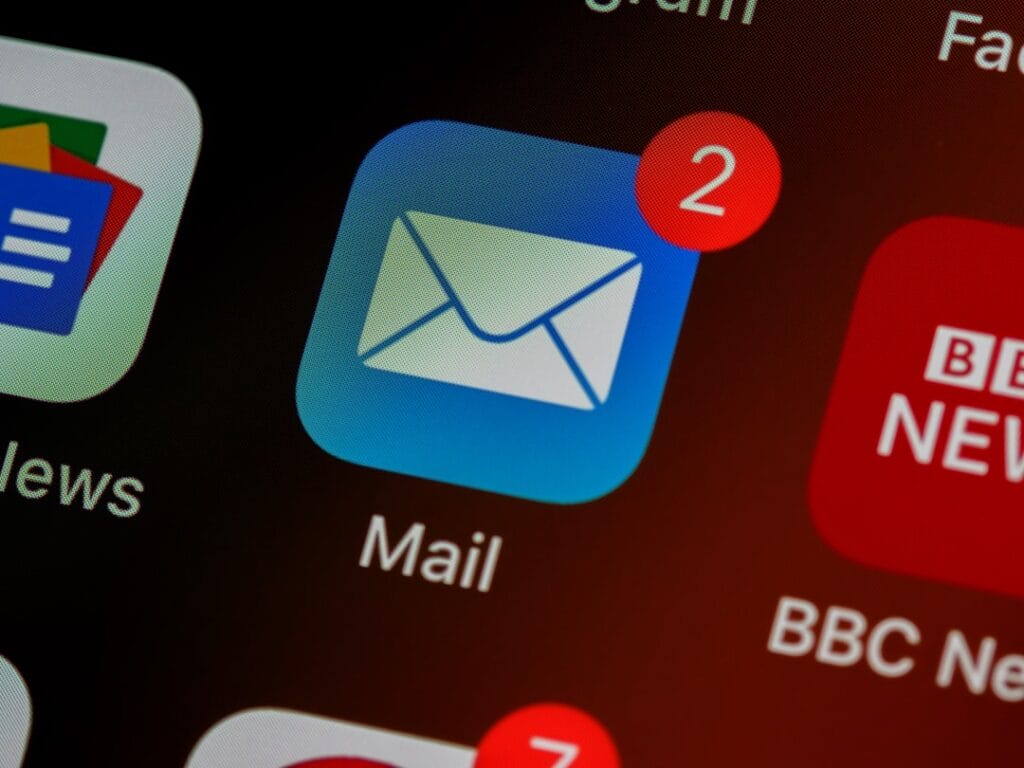B2B (business-to-business) lead generation is a strategic process aimed at identifying and attracting qualified prospects to a business. This process involves collecting information about companies or professionals potentially interested in the products or services offered. B2B leads are business contacts who have expressed interest in a specific offering, usually by voluntarily providing their contact details.
lead generation relies on various marketing methods, including:
1. Content marketing : creation and dissemination of informative and relevant content. 2.
Search engine optimization (SEO): improving online visibility. 3. Email marketing: sending targeted and personalized communications.
4. Social media: engagement and interaction with prospects on professional platforms. 5.
Influencer marketing: working with industry experts to increase credibility. 6. Events and webinars: organization of virtual or physical meetings to present solutions.
The effectiveness of the generation of B2B leads depends on the quality of the data collected and the ability to analyze them. Companies often use customer relations management tools (CRM) to follow and nurture leads throughout the sales cycle. This approach optimizes the conversion process of prospects to customers and contributes to the long -term growth of the company in the B2B sector.
Summary
- The generation of B2B leads consists in identifying and attracting potential prospects for the products or services of a company.
- Content marketing is essential for attracting qualified leads by providing relevant and useful information across different channels.
- Social media is a powerful tool for B2B lead generation, allowing you to effectively target and engage a professional audience.
- SEO is crucial for B2B lead generation because it helps increase business visibility and attract qualified traffic.
- Email marketing is an effective strategy for B2B lead generation, allowing you to personalize messages and maintain regular contact with prospects.
- Influencer marketing can help develop B2B leads by partnering with thought leaders and industry experts to promote the company's products or services.
- Setting up a B2B lead tracking and management system is essential to effectively convert prospects into potential customers.
Using Content Marketing to Attract Qualified Leads
Establish expertise and credibility
By producing and sharing relevant and informative content, businesses can establish their expertise and credibility with their target audience. This can be done through the creation of blog articles, white papers, case studies, videos, podcasts, or even webinars. By offering valuable content, businesses can grab the attention of potential prospects and entice them to provide their contact information to learn more.
Improve visibility and traffic
By using content marketing strategically, businesses can also target specific keywords related to their industry, which can improve their visibility on search engines and attract qualified traffic to their website.
Strengthen brand awareness
Additionally, content can be shared on social media to reach a wider audience and build brand awareness. Ultimately, content marketing is a powerful tool for educating, informing, and convincing potential prospects in the B2B industry.
Optimizing the use of social networks for B2B lead generation

Social networks are an essential channel for the generation of B2EN leads using social platforms such as Linkedin, Twitter, Facebook or Instagram, companies can establish relationships with their target audience, share relevant content and initiate significant conversations. This can help strengthen the notoriety of the brand, establish links with potential prospects and generate qualified leads. To optimize the use of social networks in the generation of B2B leads , companies must adopt a strategic approach by identifying the most relevant platforms for their sector of activity and by creating content adapted to each channel.
They can also use targeted advertising to achieve qualified prospects and encourage interaction with their content. Finally, it is essential to monitor and analyze the performance of campaigns on social networks in order to adjust the strategies according to the results obtained. By combining a proactive approach with an in -depth analysis, companies can exploit all the potential of social networks for the generation of B2B leads.
The Importance of SEO for B2B Lead Generation
| Metric | Value |
|---|---|
| Conversion rate of leads generated by SEO | 15% |
| Number of qualified leads generated per month | 200 |
| Increase in organic traffic after SEO optimization | 40% |
| Cost of acquiring a lead via SEO | 50€ |
Referencing, or SEO (Search Engine Optimization), plays a crucial role in the generation of B2EN leads optimizing the content and structure of a website for search engines, companies can improve their online visibility and attract qualified traffic to their site. This can result in an increase in the number of potential prospects that discover the company when they carry out research related to its sector of activity. To optimize the importance of referencing in the generation of B2B leads , companies must ensure that their website is well structured, that their content is relevant and optimized for relevant keywords, and that they use meta tags and internal links to improve their classification on search engines.
In addition, it is essential to regularly monitor the SEO performance of the website and make adjustments based on changes in search engine algorithms. By combining a proactive approach with in-depth analysis, businesses can maximize their online visibility and attract a steady stream of qualified leads through SEO.
The Power of Email Marketing in B2B Lead Generation
E-mail marketing is a powerful tool for the generation of leads B2en sending targeted and personalized emails to potential prospects, companies can establish sustainable relationships, share relevant content and encourage action. This can be done through the sending of newsletters, promotional emails, follow-up e-mails after interaction on the website, or personalized emails depending on the behavior of the prospect. To fully exploit the power of email marketing in the generation of B2B leads, companies must adopt a personalized approach by segmenting their database according to the interests and behavior of prospects.
They can also use automation tools to send emails at the right time and to the right audience, which can improve campaign effectiveness. Additionally, it is essential to monitor the performance of email campaigns and make adjustments based on the results obtained. By combining a personalized approach with in-depth analysis, businesses can harness the full potential of email marketing to generate qualified leads in the B2B sector.
Using influencer marketing to develop B2B leads

The power of influencers
Influencer marketing is an effective strategy for developing B2B leads by leveraging the expertise and credibility of influencers in a specific industry. By collaborating with relevant influencers, businesses can reach qualified audiences, build brand awareness, and build relationships with potential prospects. This can be done through the publication of sponsored content, participation in events or the creation of strategic partnerships.
Identify the right influencers
To use influencer marketing effectively in B2B lead generation, businesses must identify influencers who have an audience aligned with their target audience and who share the same values. They can then collaborate with these influencers to create authentic and engaging content that piques the interest of potential prospects.
Measure the impact and adjust the strategy
Additionally, it is essential to measure the impact of influencer marketing campaigns in order to evaluate their effectiveness and adjust strategies based on the results obtained.
Harness the full potential of influencer marketing
By combining a strategic approach with in-depth analysis, businesses can harness the full potential of influencer marketing to develop qualified leads in the B2B sector.
Setting up a B2B lead tracking and management system
Setting up a B2B lead tracking and management system is essential to maximizing the effectiveness of lead generation efforts. By using CRM (Customer Relationship Management) tools or specialized software, businesses can track the journey of prospects from their first interaction to their conversion into customers. This makes it possible to keep precise track of interactions with each lead, assess their level of interest and personalize marketing actions accordingly.
To set up an effective B2B lead monitoring and management system, companies must clearly define the criteria that define a qualified Lead, establish a clear process to assign and follow the leads within the sales team, as well as put in place key indicators to measure the overall performance of the process. In addition, it is essential to integrate the lead monitoring and management system with other marketing tools such as e-mailing or CRM in order to ensure fluid communication between the different teams involved in the process. By combining a structured approach with an in -depth analysis, companies can maximize the efficiency of their B2B leading and convert a maximum of satisfied customer prospects.
In conclusion, B2B lead generation is a complex process that requires a strategic and integrated approach to attract, convert and retain qualified prospects in the business sector. By using content marketing, social media, SEO, email marketing, influencer marketing and an effective lead tracking and management system, businesses can maximize their chances of success in generating of B2 leadsBy combining these different approaches with in-depth analysis and constant adaptation to market developments, companies can ensure their long-term growth in the B2B sector.
If you're looking for B2B lead generation examples, you might also be interested in this article on mastering influencer marketing campaigns. Learn how to use the influence of thought leaders to attract qualified leads and improve your lead generation strategy. Check out the full article on mastering influencer marketing campaigns to learn more.
FAQs
What is B2B lead generation?
B2B lead generation is the process of creating and qualifying potential leads for businesses that sell products or services to other businesses.
What are some examples of B2B lead generation?
Some examples of B2B lead generation include using content marketing, email campaigns, webinars, trade shows, and targeted social media advertising.
How Can Marketing Content Be Used for B2B Lead Generation?
Marketing content such as blog posts, white papers, and case studies can be used to grab the attention of potential prospects and entice them to provide their contact information to learn more about the company's products or services.
What are the benefits of B2B lead generation?
The benefits of B2B lead generation include increasing sales, expanding the potential customer base, improving brand awareness, and creating lasting customer relationships.





